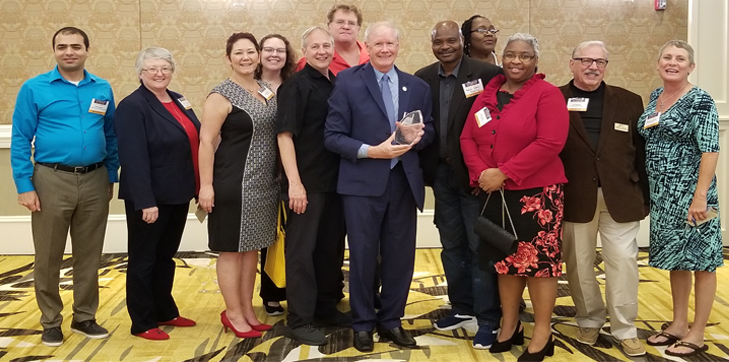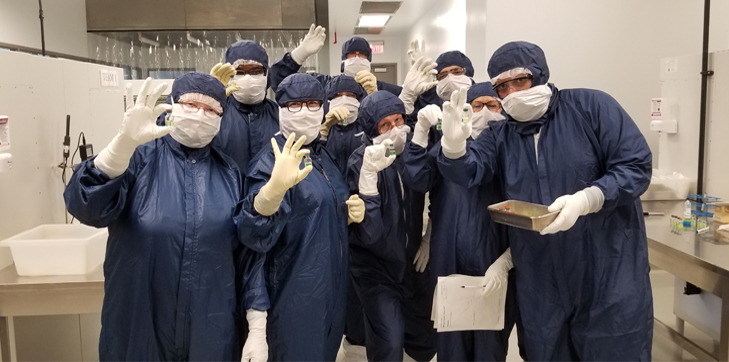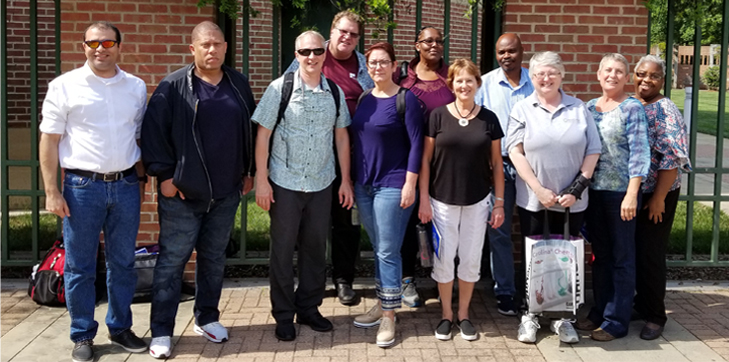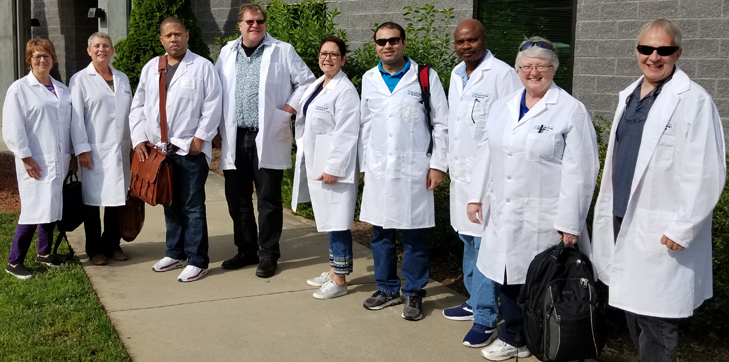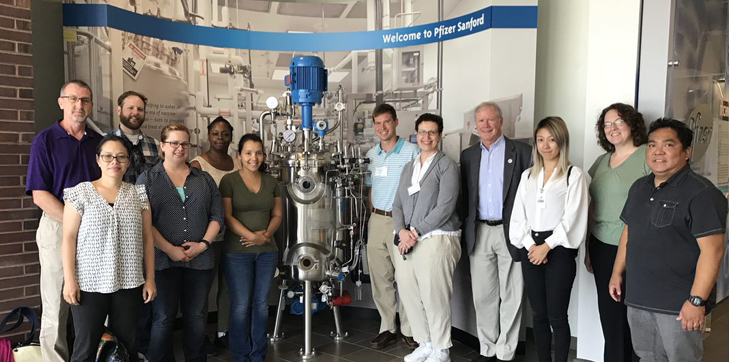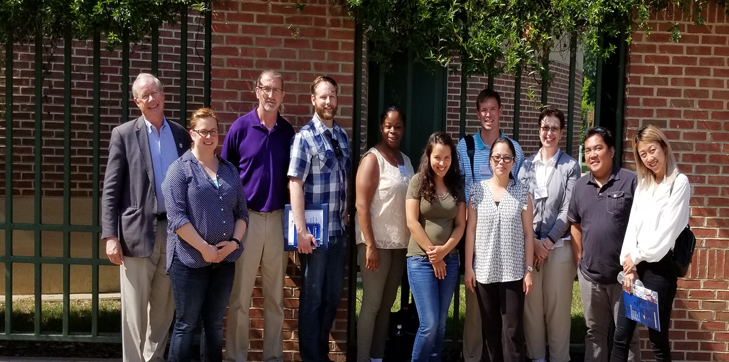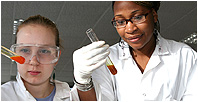Our Partnerships
 ARMI BioFabUSA
ARMI BioFabUSA
ARMI's mission is to make practical the large-scale manufacturing of engineered tissues and tissue-related technologies.
 BioMADE
BioMADE
BioMADE is working to build a sustainable, domestic end-to-end bioindustrial manufacturing ecosystem that will enable domestic bioindustrial manufacturing at all scales.
 Biotech-Careers.org
Biotech-Careers.org
Biotech Careers is an in-depth resource and database of information about the biotech industry including jobs and job descriptions for positions not requiring an advanced degree.
 Biomanufacturing.org
Biomanufacturing.org
A Northeast Biomanufacturing Collaborative originated to support the high growth industry of Biomanufacturing. Content includes breakdown of targeted jobs, equipment resource library, company listings and more.
 BRITE
BRITE
NCCU’s Biomanufacturing Research Institute and Technology (BRITE) focuses on health-related research and degree-based workforce development.
 Forsyth Technical Community College
Forsyth Technical Community College
Forsyth Tech has served Forsyth and Stokes Counties since 1960 and is home to the National Center for the Biotechnology Workforce.
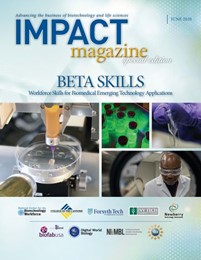 Impact Magazine
Impact Magazine
Impact magazine tells the stories behind NCBW-led federally funded national bioscience workforce initiatives and the industry, academic and workforce partnerships that make their results possible.
 InnovATE BIO
InnovATE BIO
Supported by a five-year NSF ATE grant, the InnovATEBIO National Biotechnology Education Center provides leadership in biotechnology technician education across the country.
-
 Joint School of Nanoscience and Nanoengineering (JSNN)
Joint School of Nanoscience and Nanoengineering (JSNN)
JSNN is an academic collaboration between NCA&T and UNC Greensboro. offering cross-disciplinary graduate programs in the emerging areas of nanoscience and nanoengineering.
-
 Manufacturing Institute
Manufacturing Institute
Educating, preparing, and advancing the manufacturing workforce through a system of nationally-portable, industry-recognized skills certifications. A solutions and services center for US manufacturers.
 National Institute for Innovation in Manufacturing Biopharmaceuticals
National Institute for Innovation in Manufacturing Biopharmaceuticals
The NIIMBL mission is to accelerate biopharmaceutical manufacturing innovation, support the development of standards that enable more efficient and rapid manufacturing capabilities, and educate and train a world-leading biopharmaceutical manufacturing workforce, fundamentally advancing U.S. competitiveness in this industry.
National Science Foundation ATE Program
With an emphasis on two-year Institutions of Higher Education (IHEs), the Advanced Technological Education (ATE) program focuses on the education of technicians for the high-technology fields that drive our nation's economy.
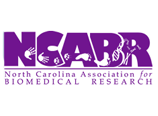 North Carolina Association for Biomedical Research
North Carolina Association for Biomedical Research
Founded in 1989 by North Carolina's leading bioscience research institutions, NCABR is the only organization in the state dedicated to advancing all North Carolinians' appreciation for the remarkable benefits of bioscience research and careers. As a statewide nonprofit organization, NCABR's members include academia, industry, government, nonprofit research organizations and professional societies. NCABR plays a leading role in North Carolina and the nation by providing objective, timely and authoritative advice and information to students and educators, representatives from government and the media, as well as members of the research community and the general public.
-
 NC Bio Impact
NC Bio Impact
Industry driven training and education. NC Bio Impact assists in providing a full spectrum of training for biomanufacturing and pharmaceutical production.
-
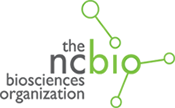 North Carolina Bioscience Organization
North Carolina Bioscience Organization
NCBIO is the trade association for North Carolina's life science industry. Members include companies and research institutions working in the pharmaceutical, medical device, diagnostic, clinical research and agricultural biotechnology sectors, as well as firms and nonprofits that provide support services to life science companies.
-
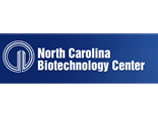 North Carolina Biotechnology Center
North Carolina Biotechnology Center
NCBC’s Piedmont Triad Regional office serves 74 global companies and small start-ups totaling 9,400 employees, working in a variety of fields including regenerative medicine, nanobiotechnology, biomedical technology and devices, supported by 243 life science focused service companies.
-
North Carolina Community College System BioNetwork
NCCCS BioNetwork is a statewide initiative that connects community colleges across North Carolina, providing specialized training, curricula and equipment, to develop a world-class workforce for the biotechnology, pharmaceutical and life sciences industries. All Community Colleges serving the pharmaceutical and biotechnology sector are part of BioNetwork.
-
 Regenerative Medicine Foundation
Regenerative Medicine Foundation
The mission of the Regenerative Medicine Foundation is to facilitate the development and cures for diseases through the science of regenerative medicine. The Regenerative Medicine Foundation advocates for increased medical research, funds basic and clinical investigations, promotes the training and education of scientists, and facilitates the translation of therapies to patients.
 Wake Forest School of Medicine ®
Wake Forest School of Medicine ®
Wake Forest School of Medicine directs the education of nearly 1,900 students and fellows, including physicians, basic scientists and allied clinical professionals. The School of Medicine also strategically investigates opportunities that will expand basic and clinical research, resulting in nationally and internationally recognized excellence in biomedical research. The School of Medicine seeks to leverage its current areas of strength and focus to improve integration of its research programs and to maximize multidisciplinary and translational approaches.
 WFIRM -
Institute for Regenerative Medicine
WFIRM -
Institute for Regenerative Medicine
The Wake Forest Institute for Regenerative Medicine is working to grow tissues and organs and develop healing cell therapies for more than 30 different areas of the body, from kidney and trachea to cartilage and lung. We're an international leader in translating scientific discovery into clinical therapies and our scientists have been first in the world to implant lab-grown tissues and organs into patients.

